Out of numerous companies that have created quantum technology, these 6 are particularly known for their work in superconducting qubits.
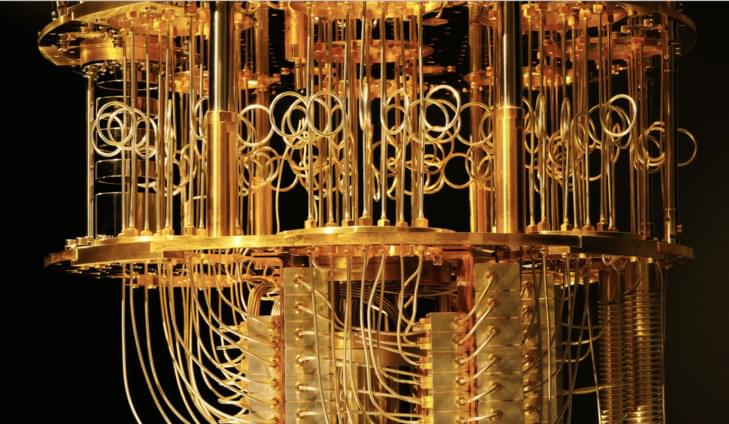

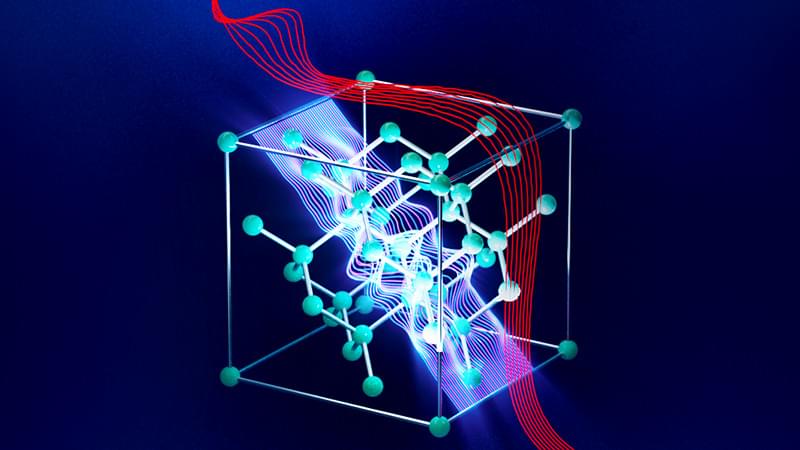
Researchers at Purdue University have discovered new waves with picometer-scale spatial variations of electromagnetic fields which can propagate in semiconductors like silicon. The research team, led by Dr. Zubin Jacob, Elmore Associate Professor of Electrical and Computer Engineering and Department of Physics and Astronomy (courtesy) published their findings in APS Physics Review Applied in a paper titled, “Picophotonics: Anomalous Atomistic Waves in Silicon.”
“The word microscopic has its origins in the length scale of a micron which is a million times smaller than a meter. Our work is for light matter interaction within the picoscopic regime which is far smaller, where the discrete arrangement of atomic lattices changes light’s properties in surprising ways.” says Jacob.
These intriguing findings demonstrate that natural media host a variety of rich light-matter interaction phenomena at the atomistic level. The use of picophotonic waves in semiconducting materials may lead researchers to design new, functional optical devices, allowing for applications in quantum technologies.
Andrew Strominger is a theoretical physicist at Harvard. Please support this podcast by checking out our sponsors:
- Eight Sleep: https://www.eightsleep.com/lex to get special savings.
- Rocket Money: https://rocketmoney.com/lex.
- Indeed: https://indeed.com/lex to get $75 credit.
- ExpressVPN: https://expressvpn.com/lexpod to get 3 months free.
EPISODE LINKS:
Andrew’s website: https://www.physics.harvard.edu/people/facpages/strominger.
Andrew’s papers:
Soft Hair on Black Holes: https://arxiv.org/abs/1601.00921
Photon Rings Around Warped Black Holes: https://arxiv.org/abs/2211.
PODCAST INFO:
Podcast website: https://lexfridman.com/podcast.
Apple Podcasts: https://apple.co/2lwqZIr.
Spotify: https://spoti.fi/2nEwCF8
RSS: https://lexfridman.com/feed/podcast/
Full episodes playlist: https://www.youtube.com/playlist?list=PLrAXtmErZgOdP_8GztsuKi9nrraNbKKp4
Clips playlist: https://www.youtube.com/playlist?list=PLrAXtmErZgOeciFP3CBCIEElOJeitOr41
OUTLINE:
0:00 — Introduction.
1:12 — Black holes.
6:16 — Albert Einstein.
25:44 — Quantum gravity.
29:56 — String theory.
40:44 — Holographic principle.
48:41 — De Sitter space.
53:53 — Speed of light.
1:00:40 — Black hole information paradox.
1:08:20 — Soft particles.
1:17:27 — Physics vs mathematics.
1:26:37 — Theory of everything.
1:41:58 — Time.
1:44:24 — Photon rings.
2:00:05 — Thought experiments.
2:08:26 — Aliens.
2:14:04 — Nuclear weapons.
SOCIAL:
- Twitter: https://twitter.com/lexfridman.
- LinkedIn: https://www.linkedin.com/in/lexfridman.
- Facebook: https://www.facebook.com/lexfridman.
- Instagram: https://www.instagram.com/lexfridman.
- Medium: https://medium.com/@lexfridman.
- Reddit: https://reddit.com/r/lexfridman.
- Support on Patreon: https://www.patreon.com/lexfridman
Interview with Prof. Sean Carroll, Research Professor of Physics at Caltech and an External Professor at the Santa Fe Institute. We mainly talk about quantum spacetime: the idea that our familiar spacetime might be actually emergent from some complex quantum mechanical system. We cover entanglement, decoherence, entropic gravity, the AdS/CFT correspondence, string theory, black holes, along with several philosophical questions concerning these topics, including reduction and emergence, substantivalism vs. relationalism, monism, and much more.
Sean’s website: https://www.preposterousuniverse.com/
His recent book concerning these topics: https://www.preposterousuniverse.com/somethingdeeplyhidden/
His papers on these topics can be found here: https://www.preposterousuniverse.com/research/annotated-publications/
His podcast: https://www.preposterousuniverse.com/podcast/
And his Twitter: https://twitter.com/seanmcarroll/
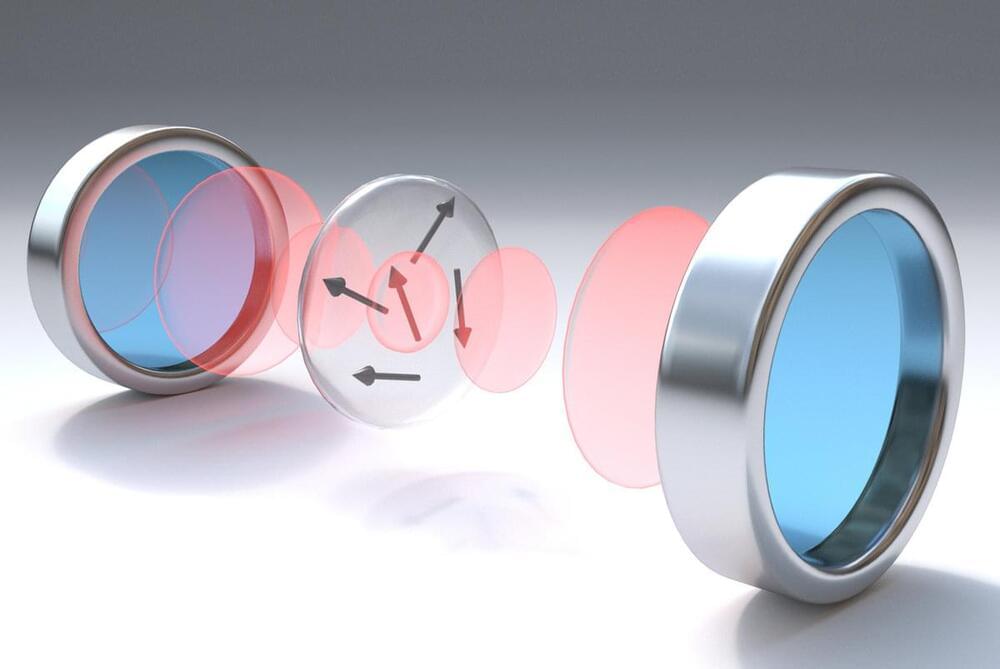
Physicists at the Max Planck Institute of Quantum Optics have developed the basic technology for a new “quantum modem”. It will allow users to connect to a future quantum internet that is based on the existing fibre optic network infrastructure.
The first quantum revolution brought about semiconductor electronics, the laser and finally the internet. The coming, second quantum revolution promises spy-proof communication, extremely precise quantum sensors and quantum computers for previously unsolvable computing tasks. But this revolution is still in its infancy. A central research object is the interface between local quantum devices and light quanta that enable the remote transmission of highly sensitive quantum information. The Otto-Hahn group “Quantum Networks” at the Max-Planck-Institute of Quantum Optics in Garching is researching such a “quantum modem”. The team has now achieved a first breakthrough in a relatively simple but highly efficient technology that can be integrated into existing fibre optic networks. The work is published this week in “Physical Review X”.

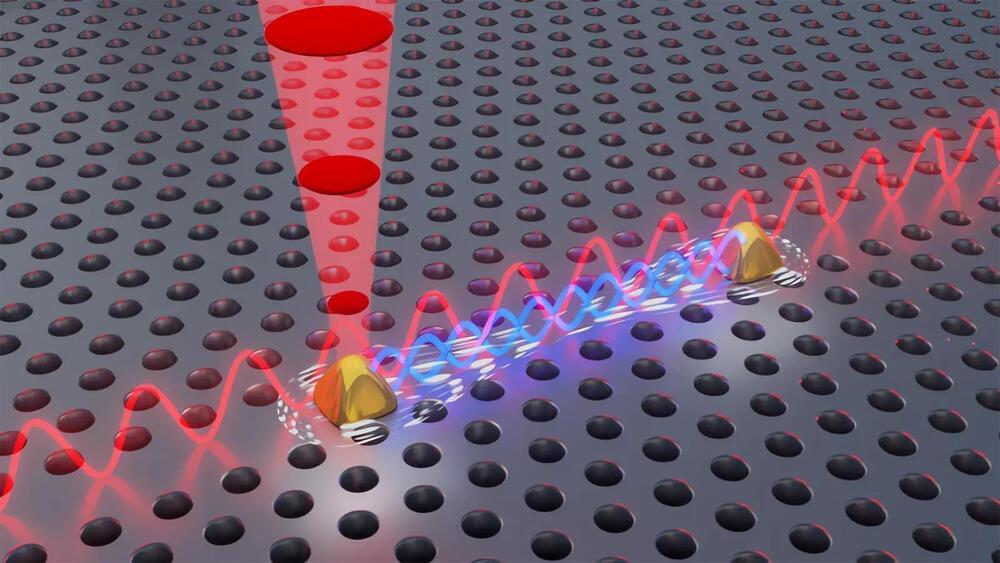
In a new breakthrough, researchers at the University of Copenhagen, in collaboration with Ruhr University Bochum, have solved a problem that has caused quantum researchers headaches for years. The researchers can now control two quantum light sources rather than one. Trivial as it may seem to those uninitiated in quantum, this colossal breakthrough allows researchers to create a phenomenon known as quantum mechanical entanglement. This, in turn, opens new doors for companies and others to exploit the technology commercially.
Going from one to two is a minor feat in most contexts. But in the world of quantum physics, doing so is crucial. For years, researchers around the world have strived to develop stable quantum light sources and achieve the phenomenon known as quantum mechanical entanglement – a phenomenon, with nearly sci-fi-like properties, where two light sources can affect each other instantly and potentially across large geographic distances. Entanglement is the very basis of quantum networks and central to the development of an efficient quantum computer.
Researchers from the Niels Bohr Institute published a new result in the highly esteemed journal Science, in which they succeeded in doing just that. According to Professor Peter Lodahl, one of the researchers behind the result, it is a crucial step in the effort to take the development of quantum technology to the next level and to “quantize” society’s computers, encryption, and the internet.
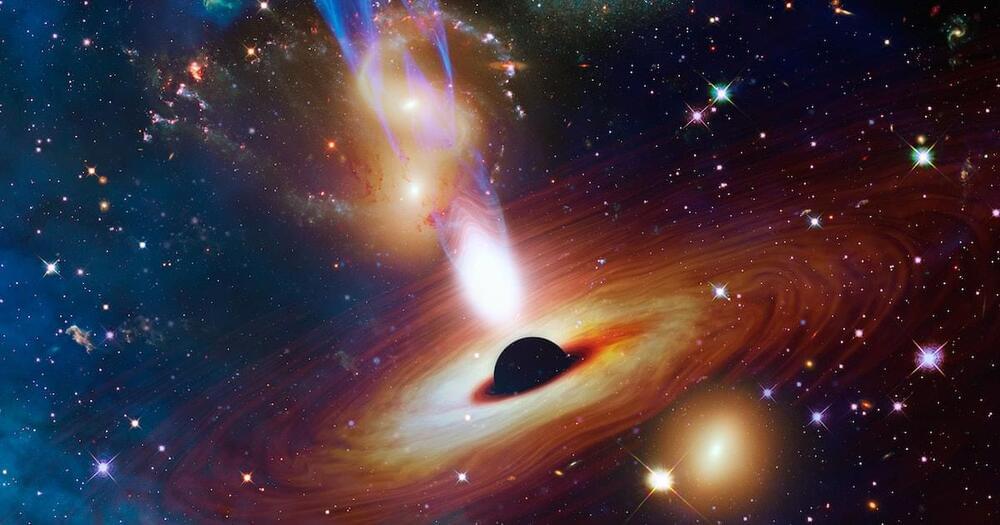
It actually makes a lot of sense from a computing standpoint.
If life is common in our Universe, and we have every reason to suspect it is, why do we not see evidence of it everywhere?
This is the essence of the Fermi Paradox, a question that has plagued astronomers and cosmologists almost since the birth of modern astronomy.
It is also the reasoning behind the Hart-TIpler Conjecture, one of the many (many!) proposed resolutions, which asserts that if advanced life had emerged in our galaxy sometime in the past, we would see signs of their activity everywhere we looked. Possible indications include self-replicating probes, megastructures, and other Type III-like activity.

Check out all the on-demand sessions from the Intelligent Security Summit here.
2022 has been a dynamic year for quantum computing. With commercial breakthroughs such as the UK Ministry of Defence (MoD) investing in its first quantum computer, the launch of the world’s first quantum computer capable of advantage over the cloud and the Nobel Prize in Physics awarded for ground-breaking experiments with entangled photons, the industry is making progress.
At the same time, 2022 saw the tremendous accomplishment of the exaflop barrier broken with the Frontier supercomputer. At a cost of roughly $600 million and requiring more than 20 megawatts of power, we are approaching the limits of what classical computing approaches can do on their own. Often for practical business reasons, many companies are not able to fully exploit the increasing amount of data available to them. This hampers digital transformation across areas most reliant on high-performance computing (HPC): healthcare, defense, energy and finance.
(TQI) is the leading online resource dedicated exclusively to Quantum Computing.